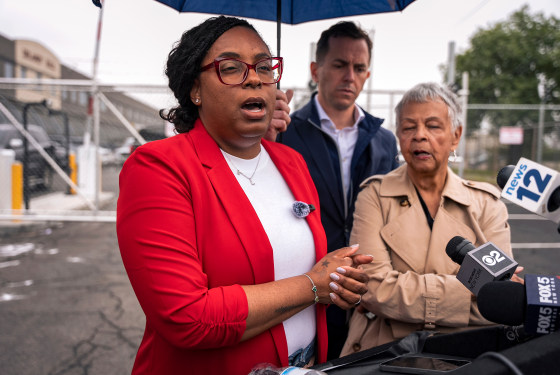LaMonica McIver: The Newark Congresswoman Facing ICE Facility Charges

Introduction
LaMonica McIver, a Democratic congresswoman from Newark, New Jersey, has recently become the focus of national attention. McIver faces federal charges after an incident at an Immigration and Customs Enforcement (ICE) facility. This situation has ignited debate about congressional oversight, immigration enforcement, and the boundaries of protest.
The Incident at Delaney Hall
On May 9, 2025, LaMonica McIver joined her colleagues at the Delaney Hall ICE detention prison in Newark. The purpose of their visit was to inspect the treatment of ICE detainees, a right and responsibility held by members of Congress. What began as a routine oversight visit rapidly escalated. According to the Justice Department, McIver is accused of "assaulting, impeding and interfering with law enforcement" during the encounter with federal agents.
Congresswoman McIver has strongly denied all allegations, calling the charges "purely political." She maintains that her actions were lawful and necessary, aimed at safeguarding detainee rights and ensuring transparency within federal facilities.
Reactions from Political Leaders
McIver’s legal team and congressional allies argue that the charges seek to intimidate elected officials and deter oversight. Her attorney, Paul Fishman, described the prosecution as "spectacularly inappropriate," stating that McIver was fulfilling her duty as an elected representative. Democratic leaders, including House Minority Leader Hakeem Jeffries, also came to her defense, emphasizing that McIver and her colleagues "were upholding their oath of office" and were "themselves aggressively mistreated."
The confrontation and subsequent charges have drawn broad media coverage. For further analysis and official statements, see the original coverage on NBC News and reporting by The New York Times.
Broader Implications and Community Impact
This high-profile case involving LaMonica McIver raises significant questions about the dynamics between federal authorities and congressional oversight. Some view the prosecution as an attempt to restrict checks and balances, especially amid protests regarding immigration policy. Others believe it sets an important precedent about security protocols at sensitive government facilities.
Community reactions in Newark have been strong, with many residents expressing support for McIver and Mayor Ras Baraka, who was also briefly arrested during the protest but saw his charges dropped. The ongoing legal proceedings will shape the public's perception of both congressional authority and the treatment of detainees at ICE facilities.
Conclusion
LaMonica McIver’s case is more than a local political dispute; it is a test of the balance between governmental oversight and law enforcement authority. As this story unfolds, it remains essential to follow reputable news sources for updates and to consider the broader context surrounding congressional actions at ICE facilities. Readers are encouraged to stay informed by consulting detailed reports from sources such as NBC News and The New York Times.